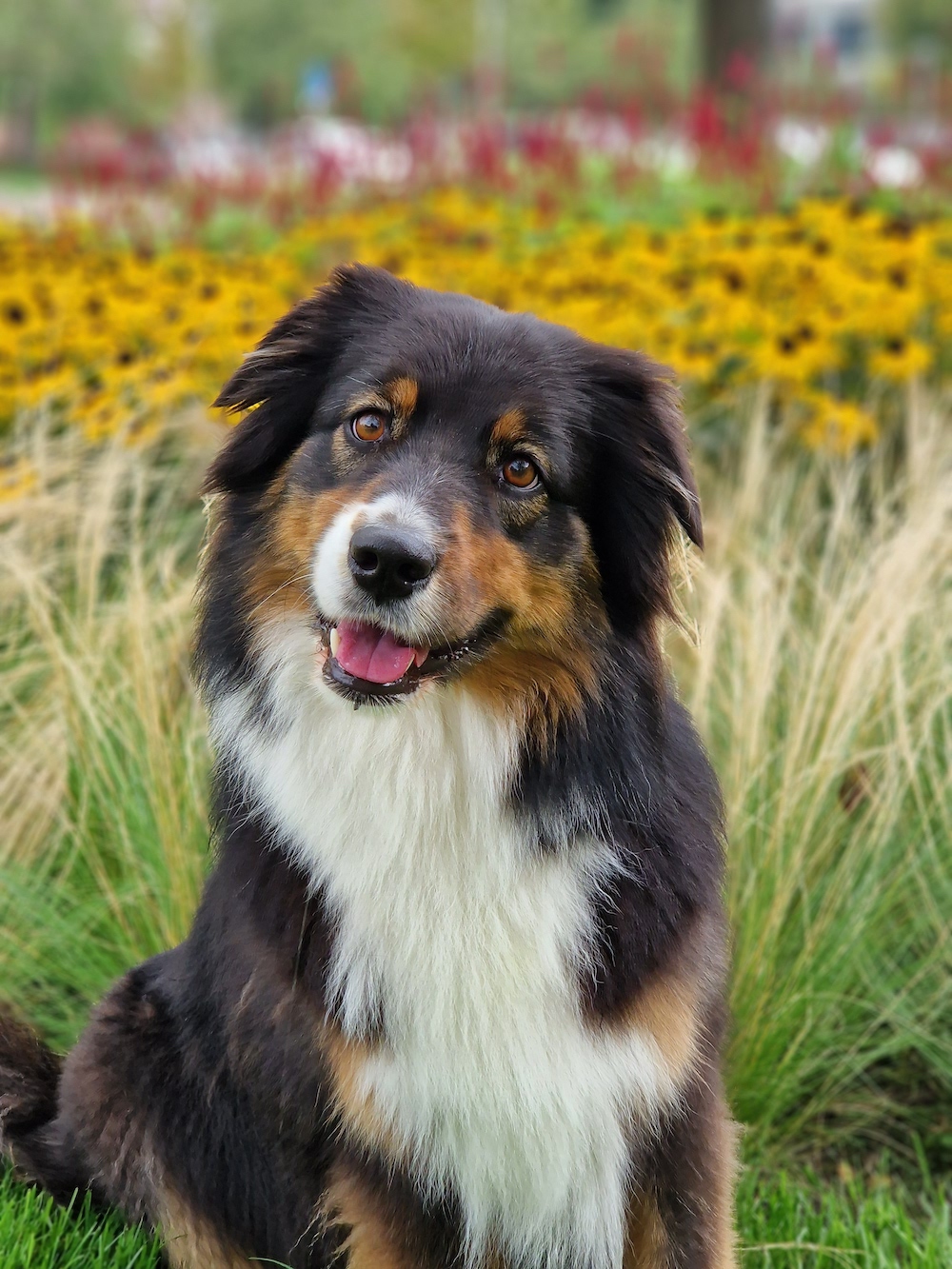How much is disposition and when are there external influences?
What determines behavior?
Behavior is influenced by various things.
inherited traits from father and mother
the learned
special situations
Behavior genes have a significant impact on every dog and lay the foundation for behaviors that, without training, traumatic experiences, and special handling, precisely exhibit the predetermined behavioral patterns.
Already in the whelping box, it becomes apparent how different each puppy is in behavior. If all puppies of a litter were to grow up under exactly the same conditions, the genetic basis of behavioral genes would become visible.
However, every puppy experiences different things, both positive and negative influences shape their further development. A puppy with a solid foundation in their behavioral genes is more tolerant of negative influences. They can handle many things better and can also become a pleasant companion even if the training was less intensive.
A puppy with noticeable behavioral genes will only develop into a stable character if it is fortunate enough to grow up in a suitable family for it.
The selected male for your female dog is typically a family dog with a certain degree of training. More or less investment has been made in training, and his behavior genes, the basis, will not be readily visible anymore. If he was a problem dog, this may not be recognized upon meeting. The same naturally applies to the female dog!
If both parent animals are only slightly conspicuous, the combination of the two can produce problem dogs that should be placed only in experienced hands and will likely be low in fault tolerance for their entire lives.
It is the breeder’s task to breed as socially compatible dogs as possible, which fit most people.
The behavior genes can be easily determined genetically, helping to find the right partner for my female dog/male dog. Through a well-thought-out scoring system, every dog can be evaluated and allows for “freeing” the entire population from noticeable behavior.
Bibliography
Bergamasco, L. (2004): “Aggressive Behaviour: Mechanisms and Function in Animals”, 10th Eur. Congr. Comp. An. Behav. Med., Cremona
Beuing, R. (2009): Zuchtwertschätzung in der Hundezucht, TG-Verlag
Bona, S. (1995): Eine populationsgenetische Untersuchung zur Zuchtsituation und zu erblich determinierten Erkrankungen : insbesondere Augen- und Gelenkserkrankungen beim Golden und Labrador Retriever
Dodman, N.H. et al. (2010): „A canine chromosome 7 locus confers compulsive disorder susceptability“, Molec. Psych. 15, 8-10
Feddersen-Petersen, D. (1992): „Hunde und ihre Menschen“, Franckh-Kosmos, Stuttgart
Gaillard, C. (2003): „Zuchtmethoden“, Institut für Genetik von Haustieren Universität Bern
Grandin, T. & Deesing, M. (1998): “Genetics and the Behaviour of Domestic Animals in Behavioural Genetics and Animal Science”, Dep. Anim. Sc., Colorado State Univ., Academic Press, San Diego Lindsay, S. (2000): “Applied Dog Behaviour and Training, Vol. 1. Adaptation and Learning”, Iowa State Univ. Press, Iowa
Lindsay, S. (2001): „Applied Dog Behaviour and Training, Vol.2, Etiology and Assessment”, Iowa State University Press, Iowa
Lindsay, S. (2005): Applied Dog Behaviour and Training, Vol. 3, Procedures and Protocols”, Blackwell Pub., Oxford
O’Heare, J. (2005): Canine Neuropsychology, Dog Psych. Publishing, Ottawa
O’Heare, J. (2007): “Aggressive Behaviour in Dogs”, Dog Psych. Publishing, Ottawa
Padgett, G.A. (1998): „Control of Canine Genetic Diseases“, Howell House
Reala, D. et al. (2007): “Integrating animal temperament within ecology and evolution”, Biol. Rev. Camb. Philos. Soc., 82(2) 291-318
Ruvinsky, A. + Sampson, B. (2001) “Genetics of the Dog”, CABI Publishing, Oxon
Saetre, P. et al. (2006>) : The genetic contribution to canine personality, Genes Brain Behav., 5(3), 240- 248
Schilcher, F. (1988): „Vererbung des Verhaltens“, Thieme Verlag, Stuttgart
Schleger, W. & Stur, I. (1990): „Hundezüchtung in Theorie und Praxis“, Jugend und Volk, Wien
Scott, J.P. & Fuller, J.L. (1965), Genetics and the Social Behaviour of the Dog”, Univ. of Chicago Press, Chicago
Serpell, J. (1995): “The domestic dog: its evolution, behavior and interaction with people”, Cambridge Univ. Pr., Cambridge
Svartberg, K. (2006): “Breed-typical behavior in dogs – Historical remnants or recent constructs?”, Appl. Anim. Behav. Sc. 96, 293-313
Svartberg, K. et al. (2005): “Consistency of personality traits in dogs”, Anim. Behav., 69, 283-291
Tissot, R. + Kaufmann, I. (2010) “Human Genetics for M-1 Students”, Department of Molecular Genetics, University of Illinois
Willis, Malcolm B. (1989): “Genetics of the Dog”, Howell House
Zimprich, P. (2010): 4.Jahrestagung der Österreichischen Gesellschaft für Neurologie


